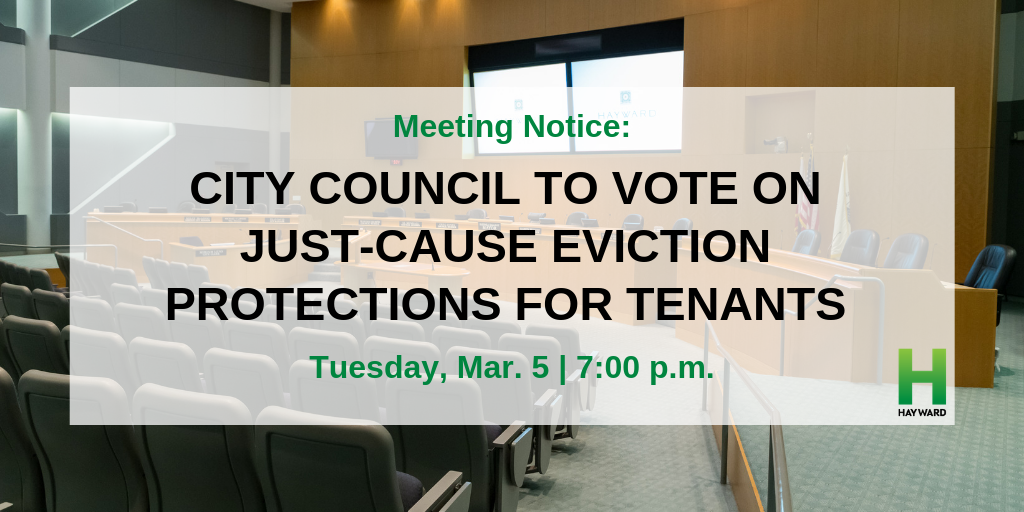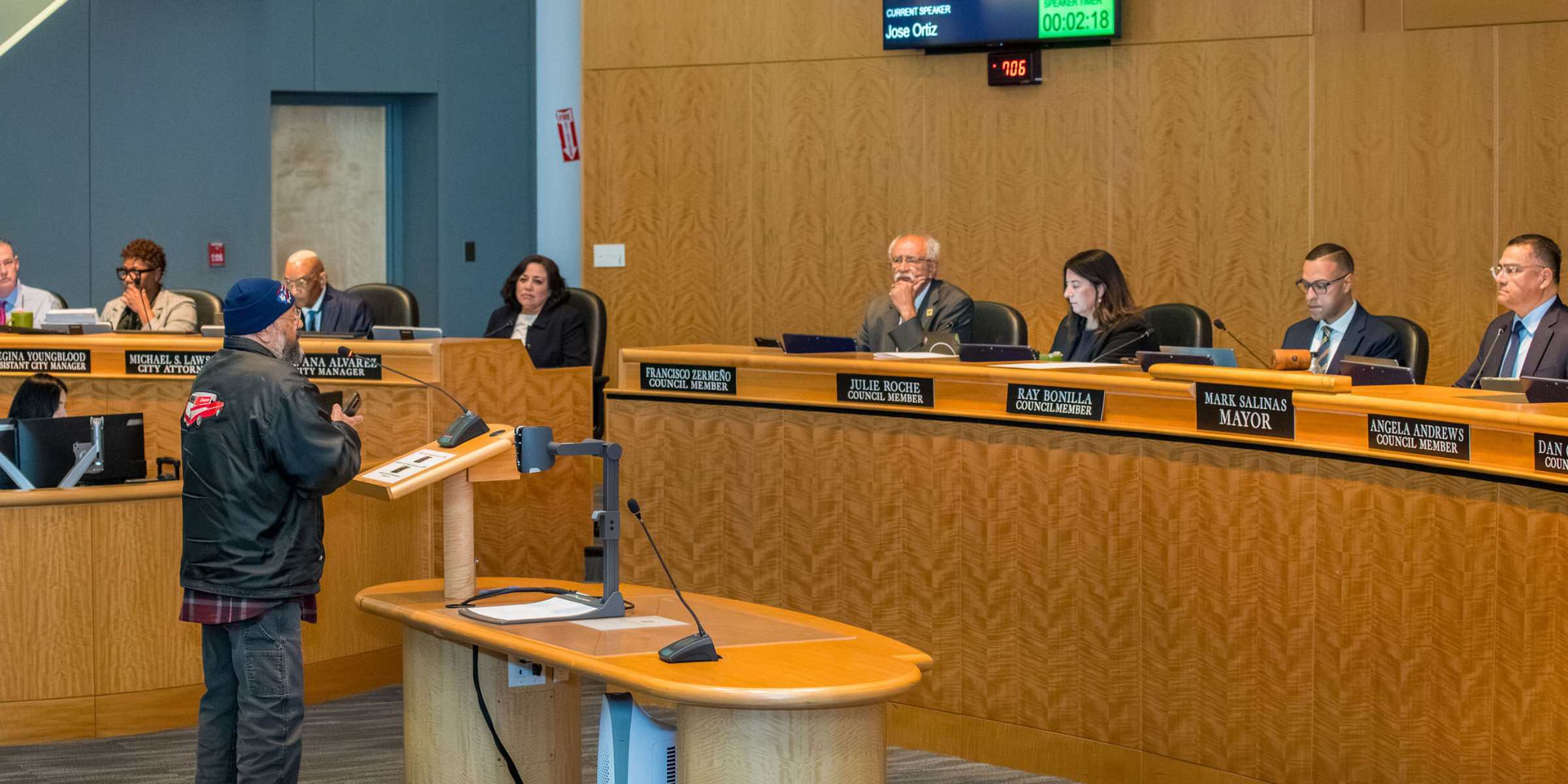City Council to vote on just-cause eviction protections for tenants

The Hayward City Council will vote Tuesday, March 5, on whether to enact new legislation to immediately provide just-cause eviction protections for tenants of rental housing.
At its Feb. 26 meeting, the Council asked that the just-cause eviction legislation be brought forward for consideration on an urgent basis out of concern that some landlords may try to evict tenants before planned changes in the City’s Residential Rent Stabilization Ordinance (RRSO) can be voted on and take effect later this year.
Among changes to the RRSO coming before the Council later this year is an amendment to give tenants the right to a system of mandatory mediation and potential binding arbitration when landlords seek to raise rent by greater than five percent over a 12-month period.
The right to mediation and arbitration for rent increases in excess of five percent would apply only to units constructed before July 1, 1979, when the City’s RRSO took effect, and would exempt single-family homes, as is required by state law governing local rent control ordinances.
The urgency ordinance that the Council requested be brought forward for a vote on Tuesday, March 5, would provide tenants general protection from evictions that are of no fault of their own, except in certain specific cases.
Landlords would still be able to evict tenants for failure to pay rent, violation of other terms of a lease, and for other reasons provided for under law. Such other allowable reasons would include:
- The landlord wants to perform repairs to the unit to meet the City’s building standards that cannot be completed with the tenant living there. The owner must obtain permits from the City. Once work is complete, the tenant must be offered the unit first.
- The landlord wants to demolish the unit.
- The landlord wants to move into the unit or wants to allow certain family members to move in. These family members include the landlord’s spouse, domestic partner, child, spouse’s child, parent, sibling, grandparent, or grandchild. This is not allowed if there is a similar unit on the property that is vacant and available.
- The landlord wants to move into the unit and the lease allows this.
Urgency ordinances written to take immediate effect require a super-majority of five Council members to vote in favor for passage.
The staff report and proposed urgency ordinance language will be published with the March 5, 2019, City Council meeting agenda packet, which will be available here on the City’s website no later than Friday, March 1.








